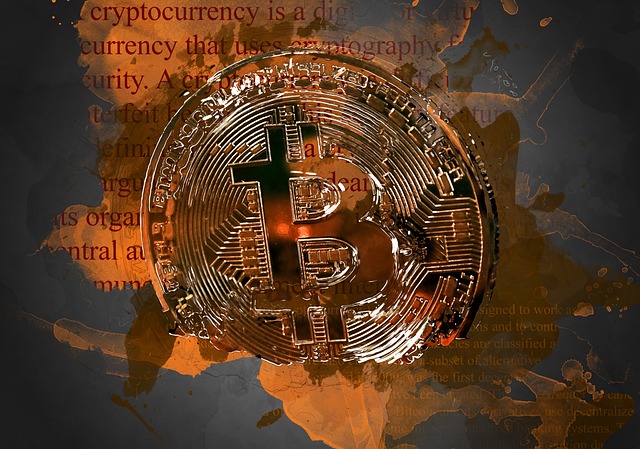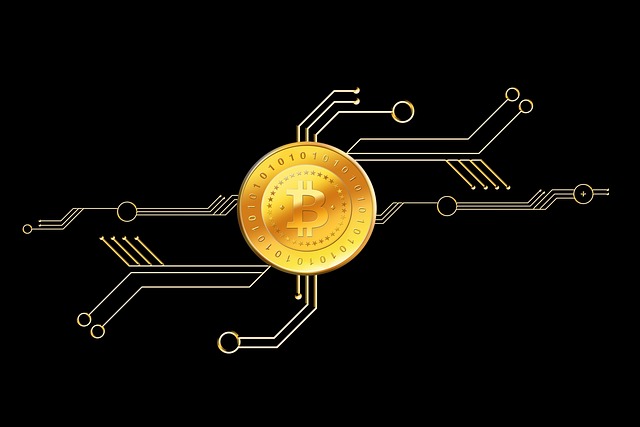DeFi Terminology: Deciphering the Language of Finance
DeFi Terminology: Deciphering the Language of Finance

Decoding the Complex Jargon of Decentralized Finance
Decentralized finance, or DeFi, has gained significant attention in recent years for its potential to revolutionize traditional financial systems. However, navigating the complex jargon associated with DeFi can be a daunting task for newcomers. From terms like “yield farming” to “liquidity pools,” the terminology used in this space can seem like a foreign language to those unfamiliar with the world of decentralized finance.
One of the first terms you may encounter in the world of DeFi is “smart contracts.” These self-executing contracts are coded onto blockchain networks, enabling the automation of various financial transactions without the need for intermediaries. Understanding the concept of smart contracts is crucial to grasping the essence of DeFi, as they form the foundation for many decentralized applications (dApps) in this ecosystem. By eliminating the need for trust in a centralized authority, smart contracts provide users with enhanced transparency and security in their financial interactions.
Unraveling the Mysteries of Financial Language in the DeFi World
Decentralized finance, or DeFi, has become a buzzword in the world of finance. But for those new to the concept, the numerous acronyms and technical terms can seem like an intimidating labyrinth of jargon. Fear not, as we embark on a journey to unravel the mysteries of financial language in the DeFi world.
Let’s start with the basics. DeFi refers to a system of financial applications, often built on blockchain technology, that aim to provide an open and decentralized alternative to traditional financial intermediaries.

Understanding the Language of Finance in the Decentralized Economy
Decentralized finance, or DeFi as it is commonly known, has revolutionized the world of finance. However, navigating the decentralized economy can be daunting, especially if you’re not familiar with the jargon and terminology used. Understanding the language of finance in the decentralized economy is crucial for anyone looking to participate in this rapidly growing sector.
One key term in the DeFi world is “smart contract.” Smart contracts are self-executing contracts with the terms of the agreement directly written into lines of code. These contracts eliminate the need for intermediaries, reducing costs and increasing efficiency. They are the backbone of many DeFi applications, facilitating transactions, managing assets, and executing agreements seamlessly. By grasping the concept of smart contracts, individuals can better appreciate the decentralized nature of the economy and its potential for transforming traditional financial systems.
Another important term to be aware of is “liquidity pool.” Liquidity pools are a fundamental component of DeFi platforms. These pools consist of funds provided by users that are used to facilitate transactions and provide liquidity to various decentralized applications. In return for their contribution, users are rewarded with fees generated from the transactions occurring in the pool. Understanding how liquidity pools work and the benefits they offer can empower individuals to make informed investment decisions in the decentralized economy.
By familiarizing oneself with the language and terms used in decentralized finance, individuals can confidently navigate this evolving landscape. As more people delve into DeFi, it is crucial to break down the complex jargon and unravel the mysteries of financial language, making it more accessible and inclusive for everyone looking to participate in this innovative financial revolution.
Demystifying the Terminology Used in Decentralized Finance
Decentralized finance, often referred to as DeFi, has gained significant traction in recent years. As this emerging sector grows, it brings with it a wide array of complex jargon that can be intimidating for newcomers. However, understanding the language used in decentralized finance is crucial for individuals looking to navigate this new and exciting landscape.
One common term you may come across in DeFi is “yield farming.” At its core, yield farming involves users providing liquidity to decentralized platforms in exchange for rewards. These rewards can take various forms, including additional tokens or a percentage of transaction fees. Yield farming allows individuals to put their idle assets to work and earn passive income, making it an attractive option for many in the DeFi space.
Another essential term to know is “liquidity pool.” In DeFi, liquidity pools are pools of tokens locked in smart contracts. These pools provide liquidity to decentralized exchanges, allowing users to trade assets without the need for traditional intermediaries. By contributing to a liquidity pool, individuals can earn fees proportional to their contribution, contributing to the overall efficiency of decentralized finance.
Understanding these terms and their implications is a crucial step in demystifying the terminology used in decentralized finance. By familiarizing yourself with the language of DeFi, you can confidently navigate this new financial landscape and make informed decisions about your investments and participation.
Navigating the Lingo of DeFi: A Beginner’s Guide to Financial Terms
As a beginner navigating the world of DeFi, it’s easy to get lost in the sea of unfamiliar financial terms and jargon. From concepts like liquidity pools and yield farming to acronyms like DEX and ROI, it can feel like trying to decipher a new language. But fear not, this beginner’s guide will help you navigate the lingo of DeFi and understand the essential terms you need to know.
One of the fundamental terms in DeFi is decentralized finance itself. Simply put, it refers to a system of financial applications and services that operate on a blockchain, eliminating the need for intermediaries such as banks and governments. This decentralized nature brings many benefits, including increased transparency and accessibility. Another important term is liquidity pool, which refers to a smart contract that contains a pool of tokens. These tokens are used to facilitate trading and provide liquidity to decentralized exchanges, allowing users to easily buy and sell assets without relying on traditional exchanges.
Cracking the Code: Key Terms and Phrases in the World of DeFi
Decentralized finance, or DeFi, has been gaining significant traction in recent years, revolutionizing the way we perceive and interact with traditional financial systems. However, diving into this realm can feel like deciphering a foreign language, as the terminology used in DeFi can be overwhelming for newcomers. To help you crack the code and navigate this complex world, we’ve compiled a list of key terms and phrases that are essential for understanding DeFi.
One important term to grasp is “smart contracts.” These self-executing contracts are powered by blockchain technology and automatically execute predetermined actions once certain conditions are met. Smart contracts have become the backbone of DeFi applications, enabling trustless and transparent transactions without the need for intermediaries. By understanding the concept of smart contracts, you’ll be on your way to comprehending the foundational building blocks of DeFi protocols.
Another term you’ll frequently encounter in the DeFi landscape is “yield farming.” This practice involves users lending or staking their cryptocurrencies on DeFi platforms in exchange for earning rewards, typically in the form of additional tokens. Yield farming allows individuals to leverage their crypto assets to generate passive income and maximize their returns. However, it is important to note that yield farming is not without risks, and users should exercise caution and conduct thorough research before participating.
A Closer Look at the Language of Finance in the Decentralized World
In the fast-growing world of decentralized finance (DeFi), the language used can often sound like a foreign tongue to those who are new to the space. With terms like yield farming, liquidity pools, and smart contracts being thrown around, it can be overwhelming and intimidating to try to understand what it all means. However, taking a closer look at the language of finance in the decentralized world can demystify the concepts and open up a realm of possibilities for investors and enthusiasts alike.
One key term to understand in the world of DeFi is yield farming. This refers to the process of staking or lending your cryptocurrency in order to earn additional tokens as rewards. It’s essentially putting your money to work for you, allowing you to earn passive income in the form of additional tokens. Another important concept is liquidity pools, which are pools of funds locked in a smart contract that provide liquidity for decentralized exchanges. By contributing your tokens to a liquidity pool, you can earn fees and potentially benefit from price slippage. Understanding these terms and how they fit into the decentralized economy is crucial for anyone looking to navigate this exciting and potentially lucrative space.
Exploring the Terminology of Decentralized Finance: Breaking Down the Language Barriers
Decentralized finance, or DeFi, has gained significant popularity in recent years as a new way of conducting financial transactions and managing assets. However, for newcomers to this fast-growing field, the unfamiliar jargon and technical terminology can seem overwhelming. To truly understand and navigate the world of DeFi, it is essential to demystify the language barriers that often stand in the way.
One of the key terms frequently encountered in DeFi is “yield farming.” This refers to the practice of staking or lending cryptocurrency assets to earn a yield or return on investment. Through various DeFi protocols, users can allocate their digital currencies to different liquidity pools and earn rewards in the form of additional tokens. While the concept may sound complex, yield farming essentially allows investors to put their idle assets to work and generate additional income.
Additionally, another important term to grasp is “smart contract.” In the context of DeFi, a smart contract refers to a self-executing agreement written in code that automatically executes the terms and conditions once specific conditions are met. These contracts are built on blockchain technology and eliminate the need for intermediaries, enabling trustless and transparent transactions. By understanding the concept of smart contracts, users can better comprehend the fundamental workings of DeFi platforms and the value they bring to the decentralized economy.
Demystifying Financial Language in the World of DeFi: Essential Terms You Should Know
When it comes to navigating the world of decentralized finance (DeFi), understanding the specific terminology used can be a daunting task. From liquidity mining to yield farming, the jargon can feel like a foreign language to beginners. However, demystifying these essential financial terms is crucial for anyone looking to dive into the exciting and rapidly evolving world of DeFi.
One key term you should be familiar with is “liquidity mining.” This refers to the process of providing liquidity to a decentralized exchange (DEX) by depositing your tokens into a liquidity pool. In return for your contribution, you are rewarded with additional tokens as an incentive. Liquidity mining plays a vital role in DeFi as it helps ensure there is enough liquidity available for traders and investors on DEX platforms. By understanding the concept of liquidity mining, you can better grasp how it affects the overall functionality and success of DeFi projects.
• Liquidity mining: Providing liquidity to a decentralized exchange (DEX) by depositing tokens into a liquidity pool and receiving additional tokens as rewards.
• Essential for ensuring sufficient liquidity on DEX platforms.
• Affects the functionality and success of DeFi projects.
Another important term in the world of DeFi is “yield farming.” Yield farming involves lending or staking your cryptocurrencies in order to earn passive income. By participating in yield farming, users can earn interest, fees, or other incentives provided by DeFi protocols. This practice allows individuals to put their idle assets to work and generate returns without actively trading. Understanding yield farming is crucial for anyone looking to maximize their earnings within the DeFi ecosystem.
• Yield farming: Lending or staking cryptocurrencies to earn passive income.
• Earns interest, fees, or other incentives from DeFi protocols.
• Maximizes earnings within the DeFi ecosystem.
In addition to these terms, it’s essential to understand what a decentralized autonomous organization (DAO) is. DAOs are organizations that operate based on smart contracts and blockchain technology rather than traditional centralized governance structures. They allow participants to have voting rights and influence over decision-making processes within the organization. DAOs play a significant role in the governance of many DeFi projects, giving community members an active voice in shaping project development and direction.
• Decentralized Autonomous Organization (DAO): Operates using smart contracts and blockchain technology instead of centralized governance structures.
• Allows participants voting rights and influence over decision-making processes.
• Empowers community members in shaping project development.
Lastly, it’s important to be familiar with the concept of impermanent loss when participating in liquidity provision on decentralized exchanges. Impermanent loss refers to potential losses incurred due to fluctuations in asset prices while providing liquidity on DEX platforms. It occurs when there is an imbalance between deposited assets’ value compared with their value if held outside the platform during price volatility periods. Understanding impermanent loss can help individuals assess the risks associated with liquidity provision and make informed decisions.
• Impermanent loss: Potential losses due to asset price fluctuations while providing liquidity on DEX platforms.
• Occurs when there is an imbalance between deposited assets’ value compared with their value during price volatility periods.
• Helps individuals assess risks and make informed decisions in liquidity provision.
Unlocking the Secret Language of Finance in the Decentralized Economy
Understanding the language of finance can be an overwhelming task, especially in the world of decentralized finance (DeFi). With a plethora of complex terms and jargon, navigating this financial landscape can feel like cracking a code. However, fear not! In this article, we will demystify the terminology used in decentralized finance, bringing clarity to the secret language that governs the decentralized economy.
From yield farming to liquidity pools, DeFi has created a unique vocabulary that can be perplexing for newcomers. However, by breaking down these terms into simple explanations, we can unravel the mysteries of this financial language. So, if you’re a beginner trying to make sense of DeFi or simply curious about the decentralized economy, this guide will equip you with essential terms and phrases that will help you understand and navigate this exciting and ever-evolving field. So, let’s dive in and unlock the secret language of finance in the decentralized economy!
What is decentralized finance (DeFi)?
DeFi refers to a financial system that operates on a decentralized network, like blockchain, without the need for intermediaries such as banks. It aims to provide open, transparent, and inclusive financial services to anyone with an internet connection.
Why is it important to understand the language of finance in the decentralized economy?
Understanding the language of finance in the decentralized economy is crucial because it allows individuals to navigate and participate in the growing field of DeFi. It helps in making informed decisions, communicating effectively, and avoiding confusion or misunderstandings while engaging with decentralized financial platforms.
What are some common terms used in decentralized finance (DeFi)?
Some common terms used in DeFi include decentralized exchanges (DEXs), liquidity pools, yield farming, smart contracts, stablecoins, decentralized autonomous organizations (DAOs), lending protocols, and tokenomics. These terms represent fundamental concepts and components of the decentralized financial ecosystem.
How can I decode the complex jargon of decentralized finance?
Decoding the complex jargon of DeFi can be intimidating at first, but it becomes easier with exposure and learning.

Why do decentralized finance platforms use their own unique terminology?
Decentralized finance platforms often use their own unique terminology to create a sense of identity and community within their ecosystem.

Are there any risks associated with decentralized finance?
Yes, like any financial system, DeFi carries risks. Some of the risks include smart contract vulnerabilities, hacking attacks, regulatory uncertainties, market volatility, and potential scams or frauds. It’s important to conduct thorough research, exercise caution, and understand the risks involved before participating in any DeFi activities.
How can I stay updated with the evolving language of finance in the decentralized economy?
To stay updated with the evolving language of finance in the decentralized economy, you can follow reputable DeFi news sources, join online communities and forums, participate in online discussions, and explore educational resources. Keeping up with industry trends and engaging with the community will help you stay on top of the latest developments and terminology.
Can I participate in decentralized finance if I don’t understand all the financial jargon?
Yes, you can still participate in decentralized finance even if you don’t understand all the financial jargon. Many platforms offer user-friendly interfaces and guides that simplify the process for beginners. However, having a basic understanding of key terms and concepts will undoubtedly enhance your experience and enable more informed decision-making.
Todays Featured Product:
Buy, exchange and grow your crypto securely with a Ledger hardware wallet, combined with the Ledger Live app. It’s never been easier to keep your crypto safe and accessible. Buy direct from Ledger.com and get todays Special Offers Here.




